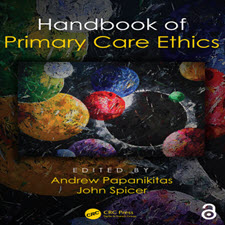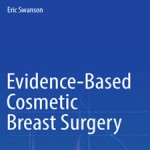Handbook of Primary Care Ethics
ABSTRACT
The word ‘autonomy’ has its origins in Greek (auto meaning ‘self’ and nomos meaning ‘law’). Whilst the philosophical concept of autonomy is often traced back to Kant, there have been many important contemporary contributors, each of whom brings their own particular perspective. Perhaps as a result, there is no uniformly agreed defnition. For Kant, autonomy was a moral concern, relating to the ability to govern one’s actions through rational judgement.1 As such an autonomous person would be able to behave in a morally correct manner without the need of external laws. More recently, others such as Lévinas have argued that autonomy is selfshly grounded entirely in one’s own personal interests and the contemporary dialogue has moved towards consideration of ‘personal autonomy’, that is, our ability to pursue the direction of our choosing in life, without such moral obligation.2 Dworkin defned ‘autonomy’ as an ability to make decisions that are grounded in our overall objectives and aspirations in life.3 He separated our desires into frst-order (our desire to commit an act, e.g. smoking during pregnancy) and second-order desires (our overall preferences, goals and values, e.g. to be a good parent). According to Dworkin, an autonomous individual would be able to critically reflect on his/her frst-order desires and only choose to act if they were in agreement with his/her second-order desires.
INTRODUCTION
Power relationships in the consultation can be broadly divided into three groups.12 1. Clinician centred (paternalism), where the healthcare practitioner makes decisions without patient input, or clinician-as-agent, where decisions are based on the patients’ perceived preferences 2. Patient centred (informed decision- making), where the patient is provided with the available options and relevant information, but makes the decision independently 3. Patient centred (shared decision-making), where the patient is provided with relevant information, their individual situation is explored and, ideally, both the patient and the practitioner agree on the best course of action13,14 In Abdul’s case, it could be tempting for the GP to make a further paternalistic ‘clinicianas-agent’-type decision, for example, assuming that initial treatment is unacceptable and switching to the alternative less effcacious treatment. However, this medical approach is not in Abdul’s best interests and makes a number of assumptions about his parents’ preferences and values.
چکیده
کلمه “استقلال” ریشه در یونانی دارد (معنای خودکار “خود” و nomos معنی “قانون”). در حالی که مفهوم فلسفی استقلال اغلب به کانت رسیده است، بسیاری از همکاران مهم معاصر، هر یک از آنها دیدگاه خاص خود را به ارمغان آورده اند. شايد در نتيجه، هيچ تصميم اتخاذ شده با يکديگر توافق وجود ندارد. برای کانت، خودمختاری یک نگرانی اخلاقی بود، که مربوط به توانایی اداره کردن اعمال خود از طریق قضاوت عقلانی است. همانطور که یک فرد مستقل میتواند بدون نیاز به قوانین خارجی رفتار منطقی داشته باشد. اخیرا، دیگران از قبیل لوییناس استدلال کرده اند که خودمختاری به طور کامل به منافع شخصی خود متکی است و گفتمان معاصر به سمت توجه به “استقلال شخصی”، یعنی توانایی ما برای دنبال کردن مسیر انتخاب ما در زندگی، بدون چنین تعهدی اخلاقی. Dworkin “خودمختاری” را به عنوان توانایی برای تصمیم گیری که در کلیه اهداف و آرمان های ما در زندگی پایه ریزی شده است، تعریف کرد. او تمایلات ما را به ترتیب فراتر گذاشت (میل ما به انجام یک عمل، مانند سیگار کشیدن در دوران بارداری) و خواسته های مرتبه دوم (ترجیحات کلی، اهداف و ارزش های ما، به عنوان مثال، به عنوان یک والد خوب). با توجه به Dworkin، یک فرد مستقل قادر خواهد بود به انتقاد از خواسته های خود را به حالت عادی بازگرداند و تنها تصمیم می گیرند که در صورت موافقت با خواسته های مرتبه دوم، آن را انجام دهند.
مقدمه
روابط قدرت در مشاوره می تواند به طور گسترده ای به سه گروه تقسیم شود: 1. متخصص مراجعه کننده به مراكز پزشكی (پاتنیزیسم) كه در آن متخصص مراقبت های بهداشتی تصمیم گیری می كند بدون ورود بیمار یا متخصص معالج، در صورت تصمیم گیری مبتنی بر ترجیحات درك شده بیمار 2 بیمار متمرکز (تصمیم گیری آگاهانه)، که در آن بیمار با گزینه های موجود و اطلاعات مربوطه ارائه می شود، اما تصمیم گیری را مستقل می کند. 3. بیمار محور (تصمیم گیری مشترک)، جایی که بیمار با اطلاعات مربوطه ارائه می شود، فرد آنها وضعیت مورد بررسی قرار گرفته است و در صورت آرام، هر دو بیمار و تمرینکننده در بهترین شیوه عمل عمل می کنند 13،14 در مورد عبدالعالیه، برای GP ممکن است برای یک تصمیم پاتریالیستی “تصمیم گیرنده بیمار”، به عنوان مثال، وسوسه باشد. فرض بر این است که درمان اولیه غیرقابل قبول است و به جای درمان کمتر درمان می شود. با این حال، این رویکرد پزشکی در بهترین منافع عبد نیست و تعدادی از مفروضات را درباره تنظیمات و ارزشهای والدین خود ارائه می دهد.
Year: 2016
Publisher: SPRINGER
By : Andrew Papanikitas, John Spicer
File Information: English Language/ 456 Page / size: 13.17 MB
Only site members can download free of charge after registering and adding to the cart
سال : 1395
ناشر : SPRINGER
کاری از : اندرو پاپانیکیتاس، جان اسپیکر
اطلاعات فایل : زبان انگلیسی / 456 صفحه / حجم : MB 13.17
[sdfile url =”http://dl.taliem.ir/book/pezeshki/Handbook.of.Primary.Care.Ethics-taliem.ir.rar”]


![Building.Services.Handbook.[taliem.ir] Building.Services.Handbook.[taliem.ir]](https://taliem.ir/wp-content/uploads/Building.Services.Handbook.taliem.ir_.jpg)
![Management.of.Urologic.Cancer.Focal.Therapy.[taliem.ir] Management.of.Urologic.Cancer.Focal.Therapy.[taliem.ir]](https://taliem.ir/wp-content/uploads/Management.of_.Urologic.Cancer.Focal_.Therapy.taliem.ir_.jpg)
![Handbook.of.Global.Tuberculosis.Control.[taliem.ir] Handbook.of.Global.Tuberculosis.Control.[taliem.ir]](https://taliem.ir/wp-content/uploads/Handbook.of_.Global.Tuberculosis.Control.taliem.ir_.jpg)
![Advanced.Handbook.of.Systemic.Lupus.[taliem.ir] Advanced.Handbook.of.Systemic.Lupus.[taliem.ir]](https://taliem.ir/wp-content/uploads/Advanced.Handbook.of_.Systemic.Lupus_.taliem.ir_.jpg)
![Cognitive–behavioral therapy for primary insomnia[taliem.ir] Cognitive–behavioral therapy for primary insomnia[taliem.ir]](https://taliem.ir/wp-content/uploads/Cognitive–behavioral-therapy-for-primary-insomniataliem.ir_.jpg)
![Handbook.of.the.Philosophy.of.Medicine.[taliem.ir] Handbook.of.the.Philosophy.of.Medicine.[taliem.ir]](https://taliem.ir/wp-content/uploads/Handbook.of_.the_.Philosophy.of_.Medicine.taliem.ir_.jpg)
![Handbook.of.Pediatric.Psychology.5th.Edition.[taliem.ir] Handbook.of.Pediatric.Psychology.5th.Edition.[taliem.ir]](https://taliem.ir/wp-content/uploads/Handbook.of_.Pediatric.Psychology.5th.Edition.taliem.ir_.jpg)
![Handbook.of.Life.Course.Health.Development.[ta;iem.ir] Handbook.of.Life.Course.Health.Development.[ta;iem.ir]](https://taliem.ir/wp-content/uploads/Handbook.of_.Life_.Course.Health.Development.taiem_.ir_.jpg)



دیدگاه خود را ثبت کنید
تمایل دارید در گفتگو شرکت کنید؟نظری بدهید!